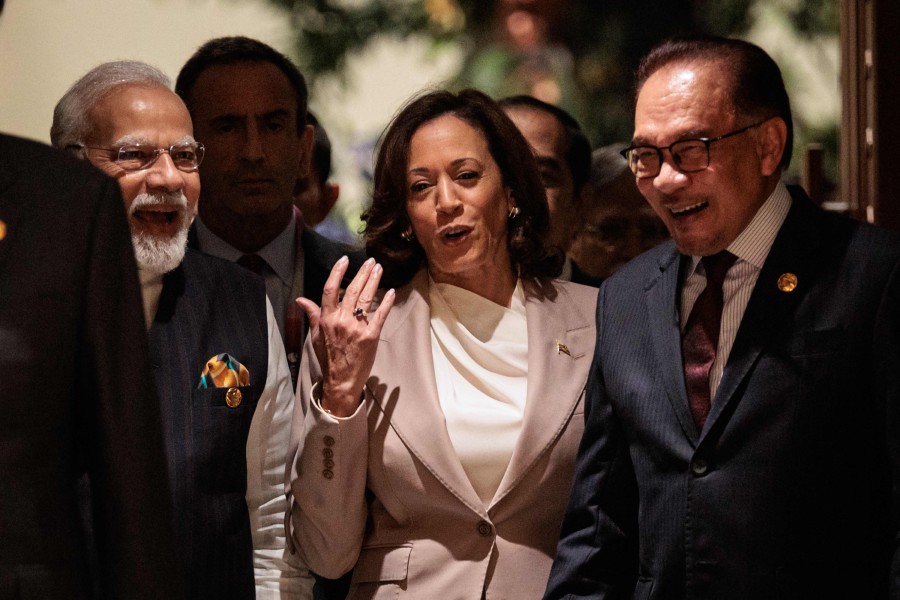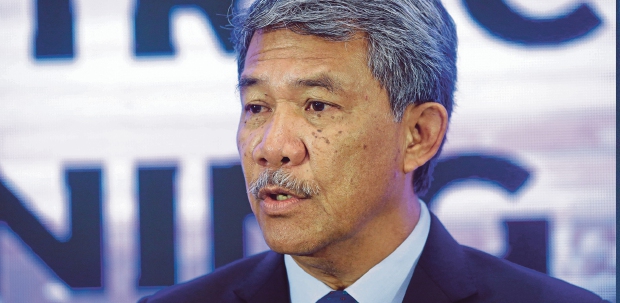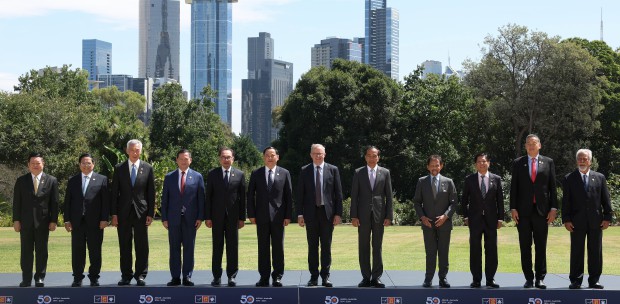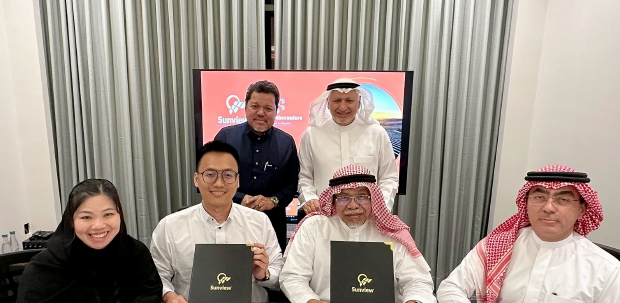JAKARTA: Prime Minister Datuk Seri Anwar Ibrahim highlighted the need for the international community to address the rise of Islamophobia and any form of defamation of any religion.
When speaking at the 18th Asean-East Asia Summit here, he said such forms of defamation was an infringement of human rights and was an issue that needed to be addressed by the global community.
"I wish to refer to the global rise of fascism and Islamophobia. We reiterate our position that the defamation of any religion is an infringement of human rights, and derogation of the right to religion and belief.
"And I think this forum with the presence of all prominent leaders must attempt to try and resolve this problem and these issues within these coming days," he said in a speech.
Besides the 11 Asean members, the Asean-East Asia Summit includes representatives from the governments of the regional bloc's dialogue partners such as Australia, China, Japan, India, New Zealand, the Republic of Korea and the United States.
Anwar also touched on conflicts outside the Asean region, which were also included in the Asean chairman's statement issued during the 43rd Asean Summit and Related Summit.
Anwar said the international community cannot ignore the Palestinian-Israeli conflict which has prevented the peoples in the region from going about their lives and practising their respective faiths in peace.
"The international community cannot disregard Israel's continuous assault against the fundamental right, livelihood and dignity of the Palestinians and the people of all faiths in their own land."
He said the Palestinian-Israeli conflict spanning 75 years may be something which some Asean members choose not to bring up but it must be highlighted in a platform such as the Asean-East Asia Summit.
"I want to take note here, the concern of many of us, not said publicly, about the disproportionate treatment in regard to the recent conflict in Ukraine and the 75-year conflict in the occupied Palestinian territory."
He said Malaysia rejected any regression in the situation in Ukraine and called for meaningful dialogue to again reach an amicable resolution.
Anwar said with the prevailing geopolitical dynamics in the world, it makes it more imperative for the Asean-East Asia Summit's participating countries to strengthen their commitments to its fundamental principles.
"The EAS platform should be fully utilised as a mechanism of cooperation in which differences are managed, in an inclusive and constructive manner.
"In keeping with the objectives of preserving peace, prosperity and stability in the Asia Pacific and Indian Ocean regions, we call our partners to work together with Asean to implement the four-key areas of the Asean Outlook on the Indo-Pacific - maritime cooperation, connectivity, sustainable development goals and economic cooperation."
On the South China Sea, he said Malaysia was committed to the peaceful resolution of any dispute in the territory in accordance with recognised principles of international law, including the 1982 United Nations Convention on the Law of the Sea (UNCLOS).
He said China, which is an Asean dialogue partner, has assured for peace and stability to prevail in the region.
"We were reassured by (Chinese) Prime Minister Li Qiang's firm commitment and we would call on other interested parties to give similar commitment to ensure there is peace and stability in this region."
He said Malaysia was also concerned over the situation in the Democratic People's Republic of Korea (North Korea) in terms of its nuclear programme which affects the region.
"The incessant launching of ballistic missiles and nuclear programmes clearly violated the United Nation Security Council's resolution. And I don't think we in this forum could choose to ignore the concerns of the neighbours of countries in this region."
Anwar also reiterated Asean's stance on the situation in Myanmar and noted how any further failure to handle the problem could affect other Asian states, including Bangladesh.
"We commend Indonesia's relentless initiative to seek an amicable resolution, based on the Five Point Consensus (5PC). But the insistence of the military Junta seems to be the major block to frustrate this effort. We are now concerned because it has its ramifications, not only in Bangladesh but also Malaysia.
"We have to handle more than 200,000 migrants."






